Introduction
Amidst the flood of unverified and misleading claims on the Israel-Palestine war, India has emerged as an unlikely leading source of disinformation. Hindu nationalists in general, and supporters and members of the right-wing Bharatiya Janata Party (BJP) in particular, are among the top online profiles spreading fake viral videos and deliberate false information fanning Islamophobia. The party of Prime Minister Narendra Modi is at the forefront of an information war on social media actively working to co-opt anti-Palestine and pro-Israel narratives for domestic audiences. This rhetoric has also had offline consequences, with right-wing groups putting up posters declaring support for Israel and BJP members organising rallies for Israel. Some Hindutva supporters have even volunteered to enlist with the Israel Defence Forces (IDF).
Modi, the first Indian premier to visit Tel Aviv, was among the first non-western leaders to come out in support of Israel and “strongly and unequivocally” condemn the Hamas terrorist attack on 7 October. Shortly after, the BJP shared a 3-minute clip on its official X account equating India and Israel as victims of Islamist terrorism. The video, which garnered around 4 million views, is laden with graphic images of terror attacks during the Congress Party rule in India. It blamed the opposition party for supporting terrorism and valorised the BJP’s strike on Pakistan to eliminate what it sees as state-sponsored terrorism.
Since then, there has been a surge in posts from pro-BJP accounts, pages and private WhatsApp groups perpetuating dangerous anti-Muslim rhetoric, expressing unconditional solidarity with Israeli strikes, and mocking Palestinian victims. Hashtags such as #IndiaStandsWithIsrael, #HindusWithIsrael, #Israel_under_attack, #IsraeliLivesMatter, #IsraelFightsTerror, #IsraelFightsBack, #HamasTerrorists, #HamasWarCrimes are commonly used to increase the virality of these posts. According to the fact-checking platform Logically Facts, nearly 20% of the 1 million posts with hashtags #IsraelUnderAttack and #IStandWithIsrael came from India.
The viral misinformation included a fake account posing as an Al Jazeera journalist who claimed to have witnessed Hamas firing missiles on the Al Ahli hospital, as well as videos from a repurposed film set claiming that Palestinians are staging their injuries by putting on makeup and using dolls to depict dead children in Gaza (Figs. 1-3). Numerous posts contain recycled content, including outdated and irrelevant videos, photos, and manufactured claims, all of which have been discredited by fact-checkers who have provided additional context in the community notes on X. Yet, these posts continue to be widely shared and circulated on Indian social media, racking up millions of views. It is also clear that such tweets from some verified accounts that meet Twitter’s monetisation standards are shared for higher engagement to benefit from X’s new monetisation policy. To address this, Twitter has stopped payouts for content that has been fact-checked by community notes.
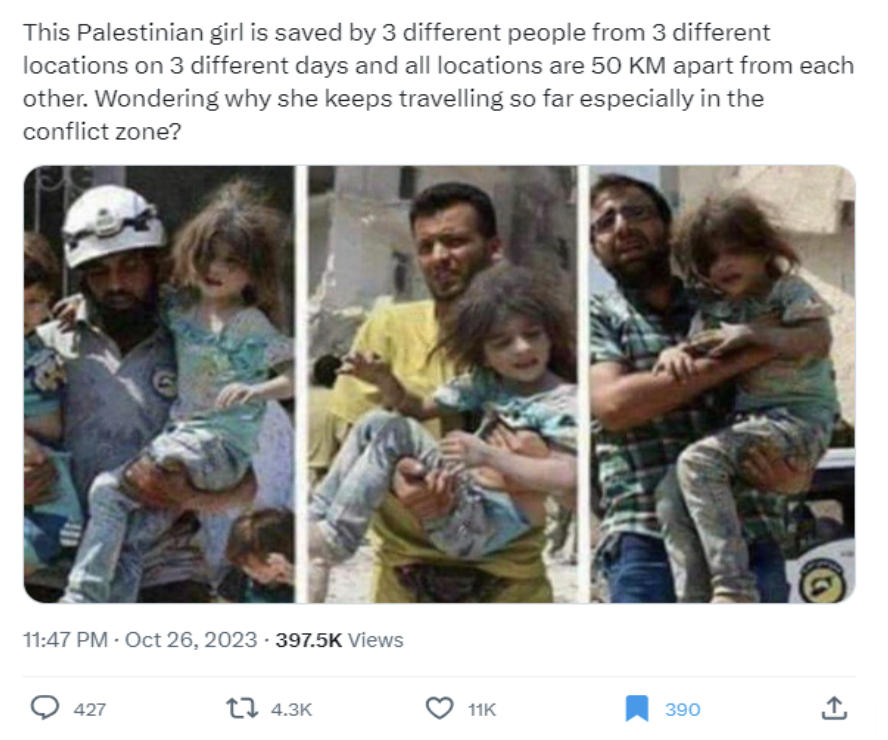
Fig. 1: Tweet spreading misinformation about Palestinian civilian casualties.
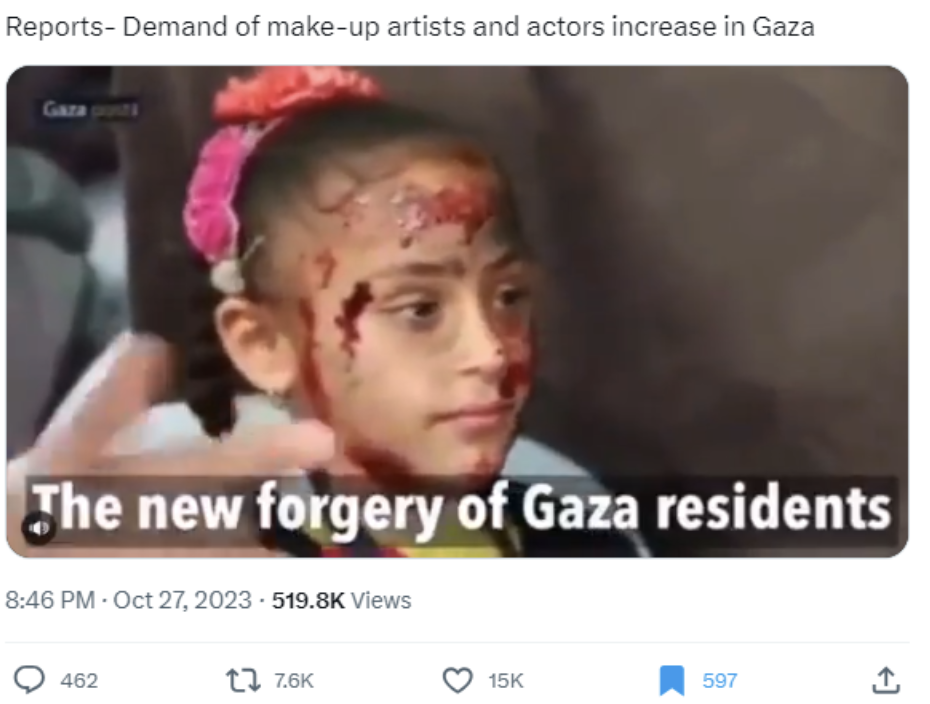
Fig. 2: Tweet claiming Palestinian civilians are faking their injuries.
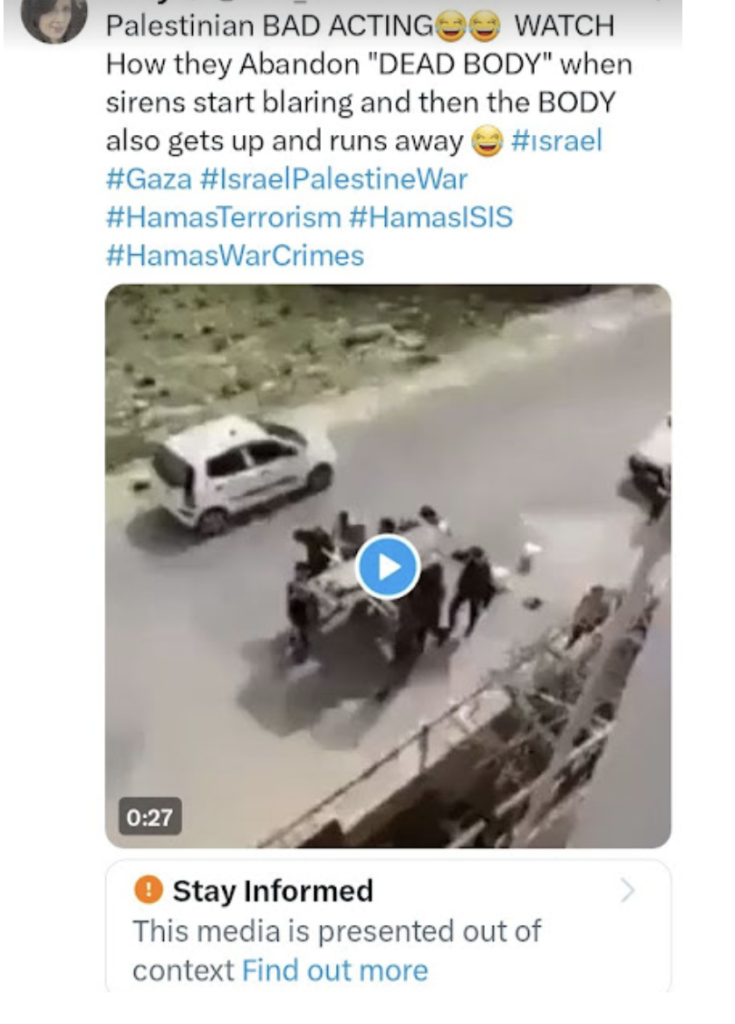
Fig. 3: Tweet claiming that Palestinian civilian casualties are actors.
Damaging narratives are being based on disinformation and assertions that link the assault on Israel with crimes against Hindus, thereby inciting hatred toward the broader Indian Muslim community and cultivating an atmosphere of fear throughout the country.
Setting up Polarising Narratives
The strong show of support for Israel by the Hindu right wing is peculiar, given that the founders of the Rashtriya Swayamsevak Sangh (RSS) — the main Hindu nationalist organisation and ideological forefather of the BJP — were known to have a profound admiration for Hitler and took inspiration from Nazi Germany. The current generation of right-wing supporters holds Israel in high regard, likening it to a formidable force that valiantly defends its small state from aggressive Palestinian factions using significant military strength and its influential stance in global affairs. They applaud Israel’s forceful responses to Hamas, while the broader global community reacts with shock at the continuous onslaught of Gaza and ever-increasing civilian casualties.
Right-wingers, however, draw many similarities between Israel and India and, by extension, between Hindus and Jews. The ongoing war has given a fresh impetus to this view that both India and Israel are victims of Islamist terrorism and are united in the fight against it. Indian accounts are lapping up daily developments in the war to set up anti-Muslim narratives such as Palestine supporters are terror apologists; the Congress Party supports terrorism; the Islamic world wants to destroy India and Israel; Jews and Hindus are the most persecuted peoples and share the same DNA (Figs. 4-5).
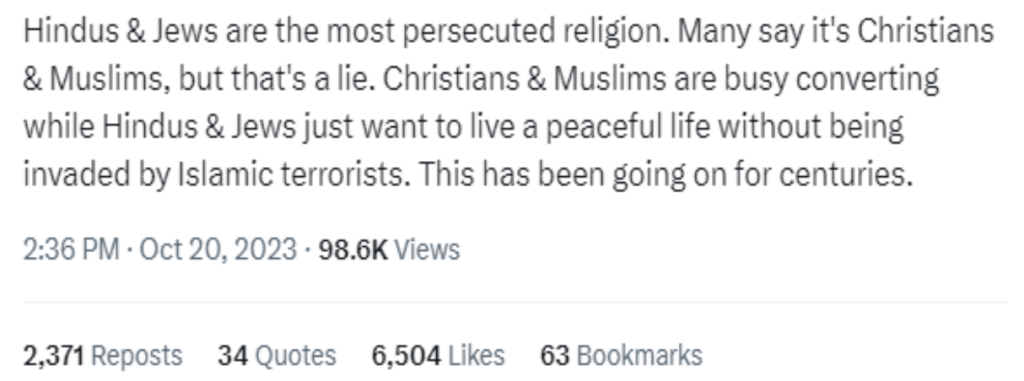
Fig. 4: Tweet claiming that Hindus and Jews are the most persecuted religion
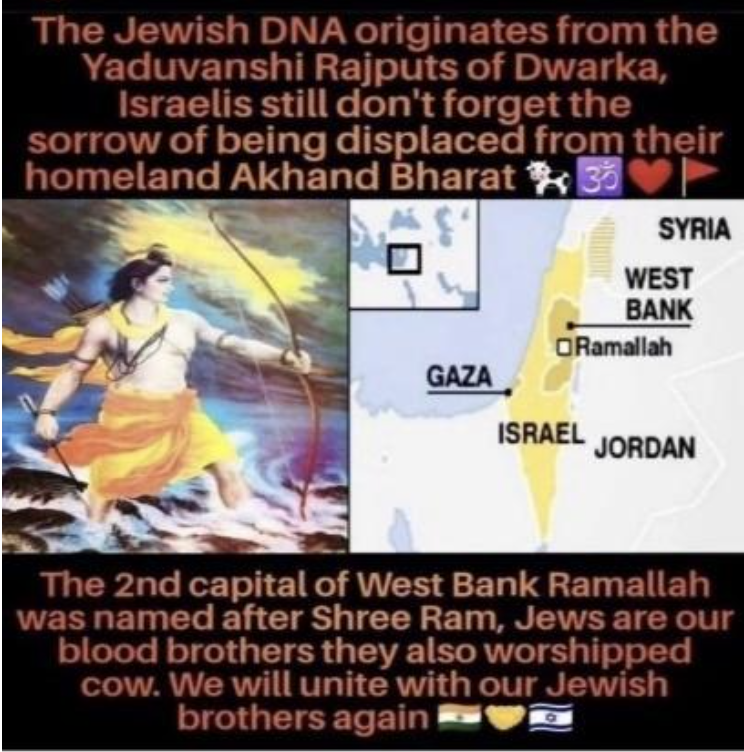
Fig. 5: Viral image claiming that Jews and Hindus share the same DNA.
These narratives, laced with hateful undertones, reinforce animosity against the Muslim community in India and serve as a fresh reminder to the Hindu majority that Muslims are the real enemy. They also reiterate the argument that the opposition Congress Party are terror apologists and the BJP is the only party that can save Hindus from existential threat. By highlighting the victimisation of Jews, Israel and its harsh military response to Palestinians, the online discourse seems to insinuate that the Indian government is, by comparison, more restrained, suggesting that it does not respond as harshly to Muslims labelled as ‘anti-national’. This type of messaging ultimately contributes to the normalisation of routine violence and persecution against Muslims, while also reinforcing the notion that despite the communal tensions, Muslims in India fare much better than Palestinians.
Kashmiri Jihad and the Exile of Hindu Pandits
A common thread that emerged in the posts on X and Facebook in early October as Israel escalated its attack on Gaza, linked Hamas’s brutality against Israelis to the atrocities meted out to Kashmiri Pandits from the Muslim-dominated Kashmir Valley in the 1990s. The BJP and its supporters have selectively and continually played the Kashmiri Pandit card to further anti-Muslim rhetoric and gain sympathy among Hindu voters.
In a tweet on 20 October, BJP leader Kapil Mishra stated that the atrocities committed by Hamas are “exactly what happened with Kashmiri Pandits in [the] 90s” and to millions during the Mughal era. Several other users on X shared gruesome photos of Pandit victims and questioned the silence of Indian Muslims who are now supporting Palestinians when the atrocities were taking place in Kashmir. In a similar tone, a YouTube video shared by digital creator RJ Raunac labels liberals as hypocrites for supporting Palestinians: “If these people were really backing the Palestinians because Jews evicted them from their homeland then they should have been the first to support the plight of Kashmiri Hindus,” he says in the clip, viewed over 1.89 million times.
Likewise, on Telegram, channels led by proponents of the Hindu right wing circulated posts claiming that jihadists subjected Israelis to torture and rape just like they did to Kashmiri Pandit women. They note that Indians should remain indifferent to Palestine, since it has consistently backed its Islamic ally, Pakistan, on the Kashmir issue rather than the oppressed Hindu minority of Kashmir. They argue that those who did not witness the atrocities in Kashmir now have a chance to see a similar scenario unfolding in Israel.
Islamists are Coming for Hindus
Drawing inspiration from the rhetoric on Kashmir, other messages within pro-BJP and right-wing groups on WhatsApp and Telegram advocated for the destruction of Gaza and proposed the adoption of a similar approach in Kashmir to eradicate terrorism. They labelled Indian liberals and Muslims who support Palestine as terrorist sympathisers, urging the government to apprehend them and implement strict anti-terrorism legislation.
A narrative widely circulated online posits that after Israel and the Jews, India and Hindus will be the subsequent targets of jihadist violence. The propagation of this story hinges on two images that have been repurposed to reflect the current context, aimed at those expressing sympathy for Palestine. The initial image is from a 2022 video featuring Palestinian Islamic cleric Nidhal Siam at the al-Aqsa Mosque, where he purportedly incites violence against “filthy Hindus”. This clip has been taken out of context and disseminated across various social media channels to portray Palestinians and their advocates as hostile towards Hindus. A notable Israeli user, Liza Rosen, re-shared the video to her 24,000 followers, tweeting, “First they attack Jews, then they will come for the Hindus” (Fig. 6). After urging Hindus to retweet her post, the clip gained further traction as other accounts echoed her sentiment.
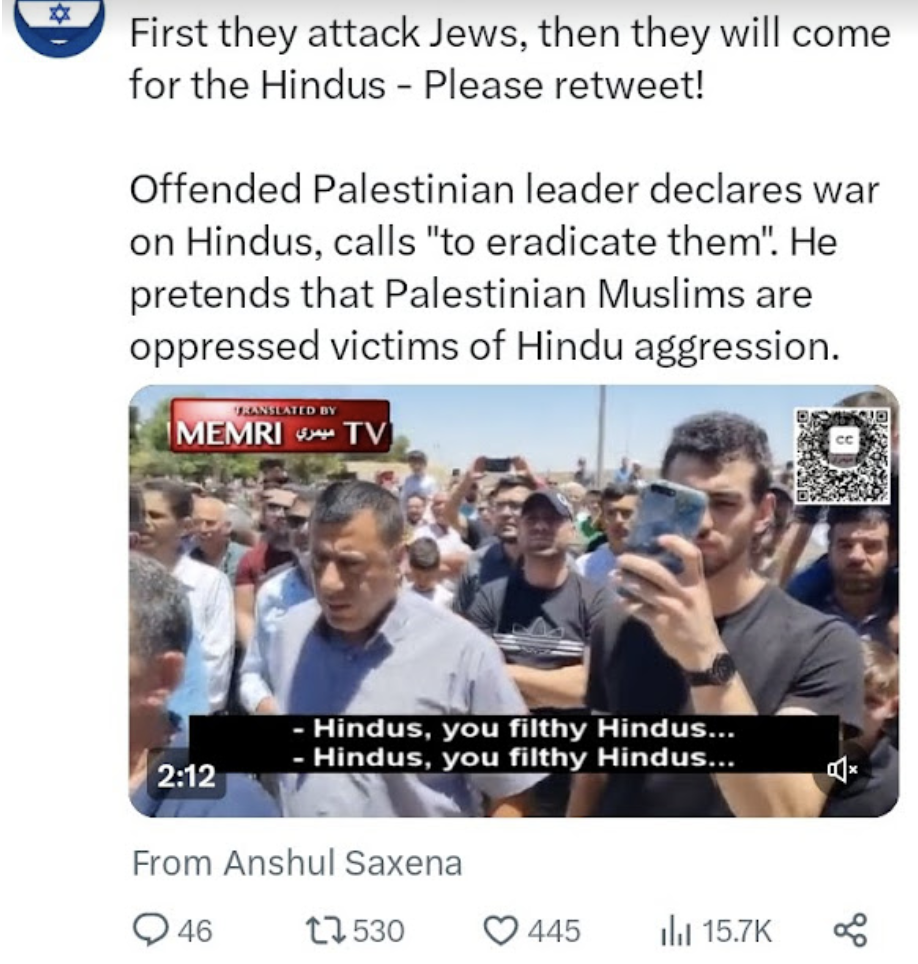
Fig. 6: Liza Rosen spreading fear among Hindus.
The second piece of contentious content is a manufactured meme with Pakistani Islamic preacher Khalid Mehmood Abbasi, falsely showing him threatening to replicate in Kashmir what Hamas has done in Israel. This meme has been broadly circulated to convey the message that Indians must prepare to fight against Muslims. Both the old video and the doctored meme are being utilised to serve as a call to action for Hindus to brace for purported imminent Islamist assaults and to cast Muslims in the role of aggressors rather than victims.
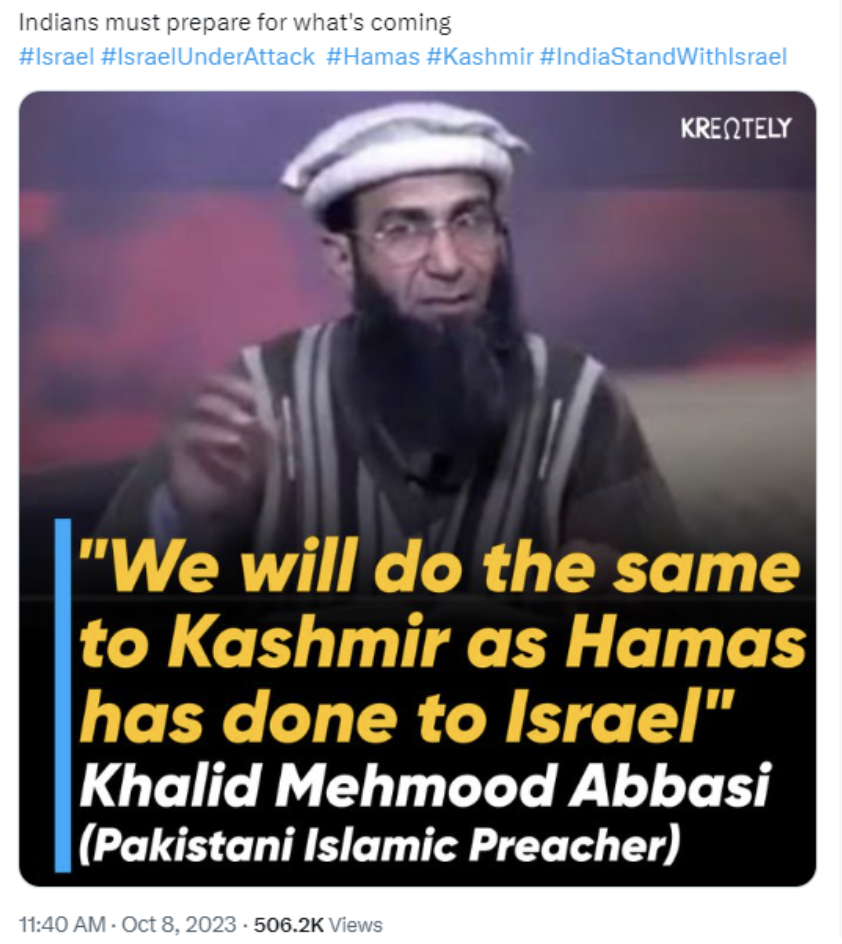
Fig. 7: Manufactured meme of Khalid Mehmood Abbasi inciting violence.
Hindutva Nationalists Band Together with Far-Right Israeli Influencers
As Hindu nationalists have exploited international events to spread hatred against Muslims at home, there has been an overt reciprocation and acknowledgement of pro-Israel influencers around the world. The official account of the state of Israel and its envoy to India have personally thanked Indian usersfor showing unrelenting solidarity with Israel.
The ongoing war is perhaps the first major international crisis in which Indian and Israeli propaganda has fed into each other. Radical Hindutva supporters are amplifying disinformation from prevalent pro-Israel accounts like American columnist Ben Shapiro and far-right activist Amy Mek, Israeli Prime Minister Benjamin Netanyahu’s former aide, Hananya Naftali and his wife, journalist India Naftali. Similarly, pro-Israel accounts with large followings in the West are endorsing Indian right-wing handles sharing false information and cherry-picking incidents in India to spread Islamophobic sentiments.
Amy Mek, for instance, highlighted three recent events in India, varnishing them with disinformation and anti-Muslim propaganda. Her tweet falsely exposing Sharia patrols harassing Hindu women in a Kerala bus has been viewed 1.2 million times and reshared over 12,000 times, despite fact-checkers debunking the claim. The other two tweets using the dog whistle “Allahu Akhbar India” castigate Indian Muslims for rallying in support of Palestinians (Fig. 8). Naftali, referring to Palestine supporters as terrorists, also praised the police for detaining young students participating in a pro-Palestine demonstration in New Delhi.
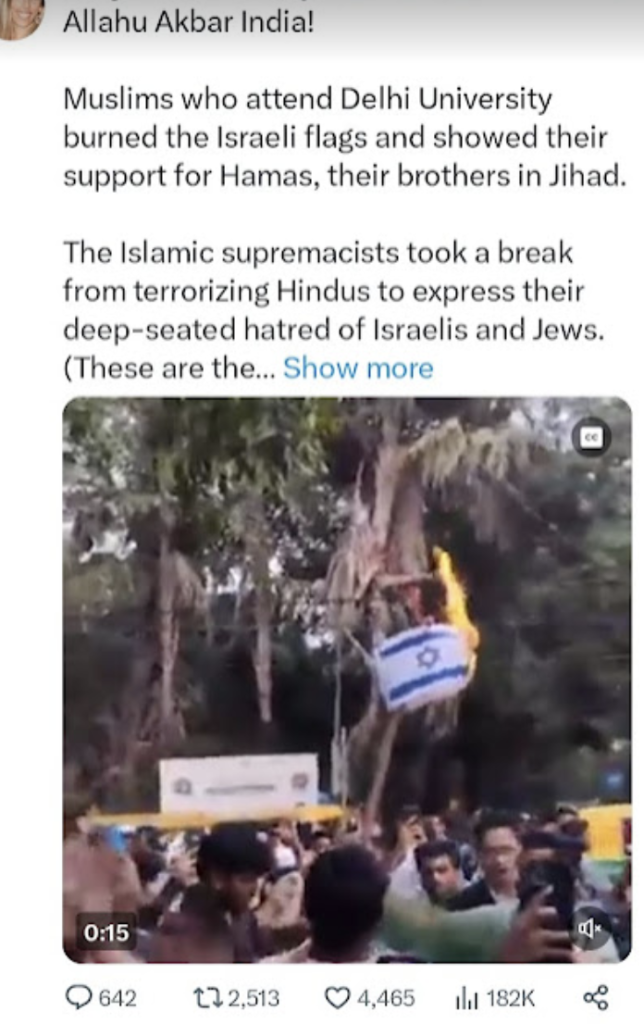
Fig. 8: Tweet by Amy Mek castigating Indian Muslims for rallying in support of Palestinians
Domestic Ramifications for Muslims
A blast on 29 October at a Jehovah’s Witness convention in Kerala which killed two and injured 45 devotees was quickly framed as a Hamas-inspired attack on the Jewish community (even though the targeted community is Christian). Prior to the prayer meeting, former Hamas leader Khaled Mashal had given a virtual speech at one of the largest Palestine solidarity rallies held in India by left-wing organisations. Top-ranking BJP ministers and right-wingers communalised the incident and called on voters to get rid of the Communist government, which they alleged was encouraging Islamist terrorism and extremism. These tweets continue to remain active on X, even as investigations found a Christian man – an ex-Jehovah’s Witness himself – to be the alleged perpetrator.
The BJP National President J P Nadda insinuated that the blast took place in lawless Kerala with the blessings of the state government. Whereas, IT minister Rajeev Chandrashekhar linked the blast to the state government’s (Muslim) minority appeasement politics which allowed Hamas terrorists to “spread hate & call for Jihad” in Kerala. National secretary and spokesman Anil Antony used the blast to appeal to people to vote for BJP using the hashtag #standupagainstterrorism, as it is the “only party in the state that can give the great people of Kerala safety.”
The conflict in Gaza has been co-opted by Hindu nationalists to stoke anti-Muslim sentiments within India, using manipulated media and charged rhetoric to draw parallels that suggest a looming threat from the Muslim community. The repurposing of content to equate local and international events has not only intensified existing communal divisions but has also raised serious concerns about the unchecked spread of hate speech on social media platforms. Platforms should strengthen their monitoring systems to identify and address misinformation and hate speech, particularly those that fuel Islamophobia and communal tensions. During such fast-moving crises, collaborating with civil society groups tracking the conflict locally can also help platforms better understand the nuances of the situation.
Shweta Desai is an independent journalist and researcher based between India and France.
